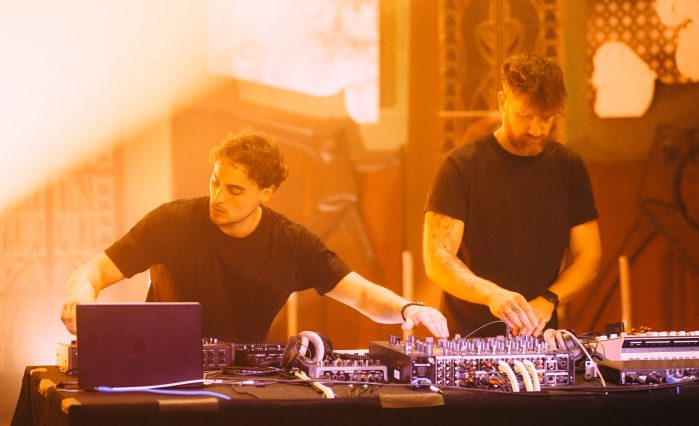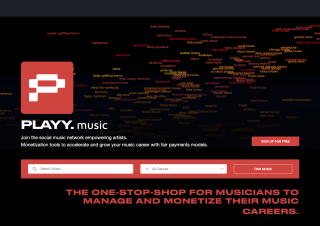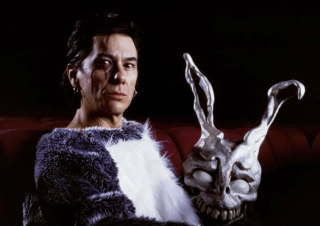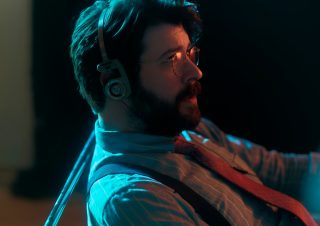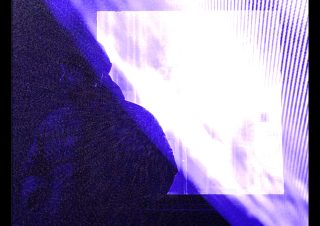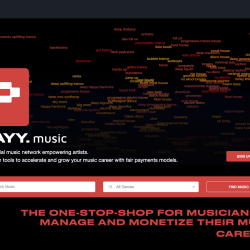Hailing from the vibrant electronic music scene of Montpellier, France, Som.1 is an innovative duo that blends organic textures, sharp breakbeats, and 90s-inspired hip hop vocals into a genre-defying sound. Formed by Djena, with her roots in house, microhouse, and groove, and Ben aka Ruhbarb, a techno and IDM enthusiast, they’ve crafted a unique sonic identity that’s both free and narrative. Their latest single, ‘Akua’, dropped on July 11, 2025, via AWO Records, offering a raw yet emotional preview of their forthcoming album, set for release on October 10, 2025. With backing from prestigious labels like R&S Records and Cod3 QR (Laurent Garnier), and having refined their craft through live performances in London, Som.1 is making waves in the electronic world.
Join us in this exclusive interview as we dive into their creative process, influences, and what’s next for this
How did you two first click as Som.1, and what was the moment you knew this partnership was going to work?
We came from different musical paths before teaming up. Djena comes from the house scene, while Ben (Ruhbarb) has roots in techno. We’d both released music and performed live before crossing paths. We were residents of the same local crew in our hometown, each playing in our respective genres—Ben on techno lineups, Djena on house.
In 2018, the club we were resident at (Dieze Warehouse) was celebrating its anniversary, and we decided to do a one-hour, machine-only live set just for the occasion. We’d never been in the studio together before, and we had just one weekend to pull it off. We made it happen, and after that, we thought: “Why not try making something in the studio together?”
It clicked right away. We’re very complementary, Djena focuses more on drums and arrangement, while Ben brings in vocals, bass, and pads. We share the same musical taste, so our artistic direction came together naturally. We developed our sound quickly and created something that felt uniquely ours. From there, it just took off.
Your sound pulls from breakbeat, techno, and 90s hip hop—what’s the one influence you couldn’t live without?
It’s hard to name just one when you’re truly passionate about music. Above all, we value emotion regardless of genre or origin. We’re eclectic people, and that’s reflected in Som.1.
We’re drawn to rich harmonies, melodic depth, and sharp rhythmic structures. More than anything, we’re driven by the desire to bring something new to the table. We don’t claim to reinvent the wheel, but we do want to shake things up a bit.
Unstructured rhythms, vocal work, heavy pads, and deep basslines—that’s the core of what we seek in our sound.
Working with labels like R&S Records and Cod3 QR sounds huge—how did those gigs change the way you see yourselves as artists?
It was definitely a huge honor to be part of the R&S 40th anniversary compilation and to have Laurent Garnier release our music on Cod3 QR. That’s a personal milestone for sure but it hasn’t changed how we see ourselves.
We’re in constant evolution. Every studio session, every new machine or synth is an opportunity to grow. It’s our deep love for music that keeps us moving forward, always questioning ourselves and trying to improve.
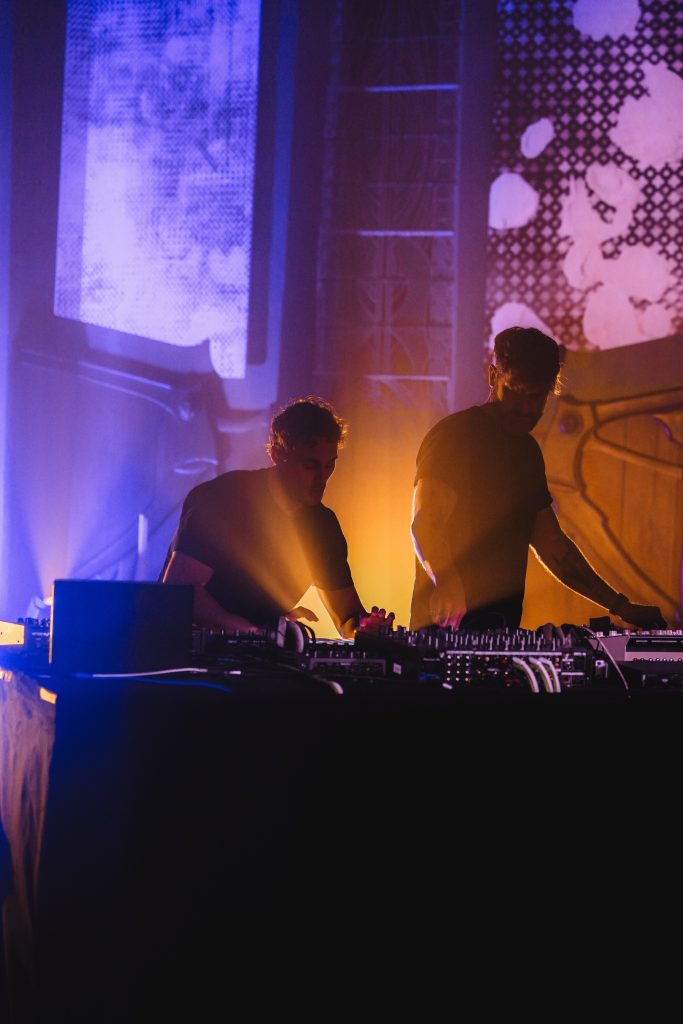
‘Akua’ has this raw, emotional edge—what was the spark that got that track rolling?
‘Akua’ started as something completely different. We made it during our time in London. Ben started sketching an idea while Djena was out for the day. When Djena got back, he said, “This isn’t working.” We kept the vocal and the atmosphere but scrapped the drums and he rebuilt them with something more fitting UK-inspired, more punchy.
Djena reworked the arrangement, initially without pads in the break. As always, we chased emotion, listening to it on loop for hours. The break evolved into something atmospheric and dark. Ben found a preset he’d created on the Prophet-6 and laid down the chords—and that was it.
It all came together quickly, which is rare for us. We’re usually very demanding of ourselves. This track really represents a meeting point between our two worlds.
You’re gearing up for a fully original live show—how do you keep the crowd hooked when you’re flipping from studio to stage?
That’s a tricky one. There’s often a real gap between what you envision in the studio and how a crowd actually responds. For us, the main challenge lies in the complexity of our drums. Some of our tracks are better suited for listening environments than for massive sound systems.
So we’ve had to adapt—not by completely reworking the tracks, but by reshaping them for live performance. We keep the essence, or “theme,” of each track vocals, pads, basslines and adjust the drum elements to make them more dancefloor-friendly.
As DJs ourselves, we understand the importance of crafting a coherent journey for the listener.
You’ll get a glimpse of that soon in a video we recorded at a castle in the South of France, produced with the media outlet Night N Day. We created a special live set built entirely from our own tracks, accompanied by a custom-designed light show. Around 90% of the album is featured in this performance. The tracks haven’t been heavily altered, which makes the result feel more like an emotional, concert-style experience than a typical club set.
That said, our live shows in clubs and festivals will be different—more focused on the dancefloor. We’ll gear up with drum machines, samplers, effects pedals, and live improvisation, always preserving the backbone of each track but pushing the energy up for that real-time crowd connection.
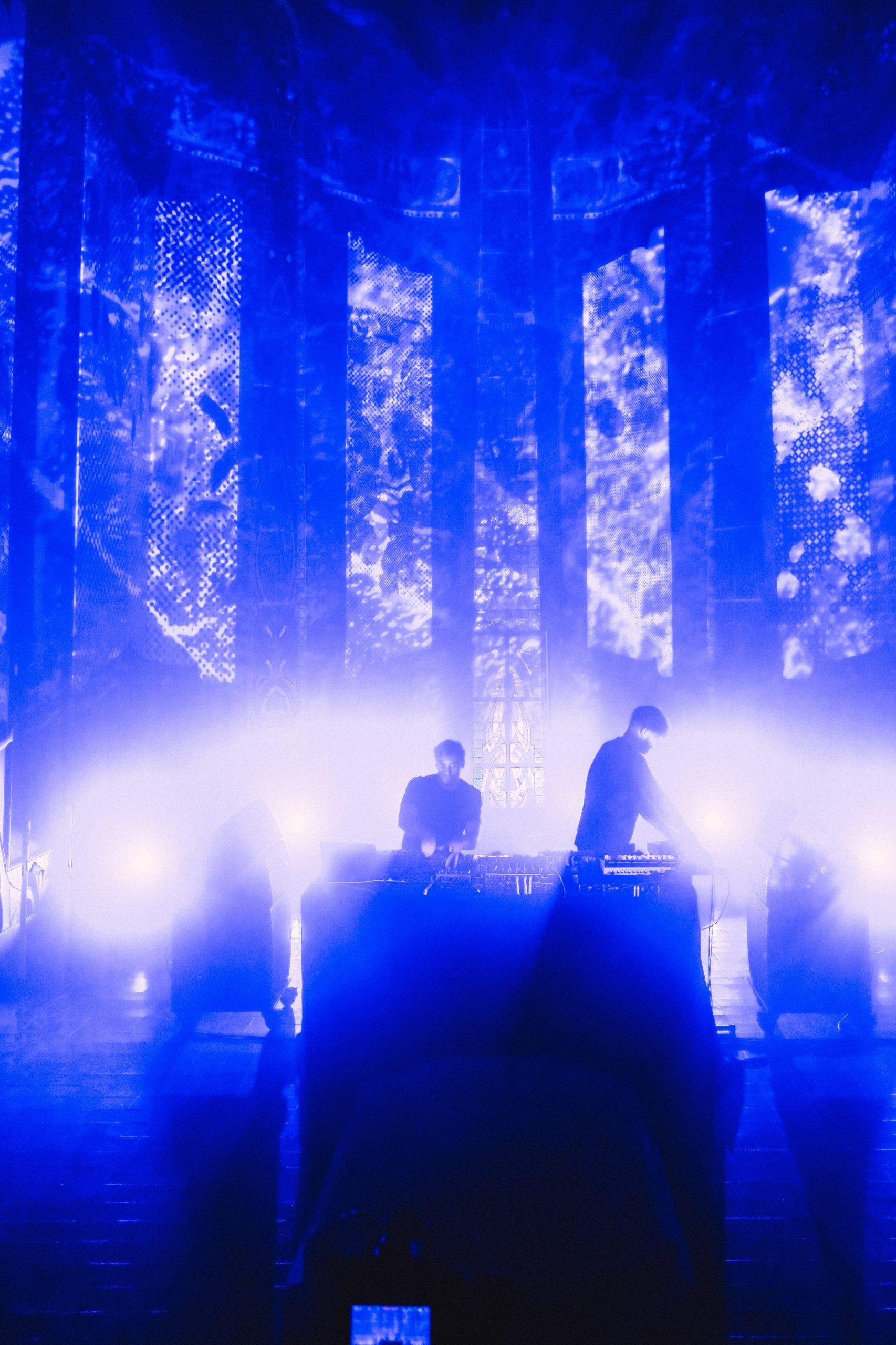
Your upcoming album drops October 10, 2025—what’s one thing you’re most hyped for fans to hear?
‘Akua’ is probably our favorite. We don’t usually listen to our own tracks on repeat, but this one has been at the top of our playlists for months. It reminds us of the SSX snowboard game on PlayStation 1—there’s that same 90s breakbeat/dnb/ragga energy we love.
That said, you never really know which tracks people will connect with. Often, it’s the ones we’re least attached to that end up being fan favorites.
‘Fire in Hall’ (our second single, out in August) is also a big one. It’s packed with raw energy and has a strong Prodigy vibe. We’re really excited to see how people react to that.
With ‘Akua,’ you’ve got this “floating main break” and harmonic tension thing going—how do you decide when a track’s got just the right amount of emotional pull?
It’s hard to put into words, because we don’t really overthink it—we just feel it. We’re both instinctively drawn to emotion and texture. Whether a track ends up as peak-time, after-hours, or warm-up material depends more on the mood we want to express than on any conscious decision in the studio.
While working on the album, we realized we had a lot of experimental and organic pieces, so we decided to add a few more dancefloor-oriented tracks to create a better balance. That slightly shifted our focus, but our creative process always starts from the heart—not from trends or audience expectations.
The “right” amount of emotional pull is completely subjective. It all comes down to the atmosphere you want to build and the story you want to tell.
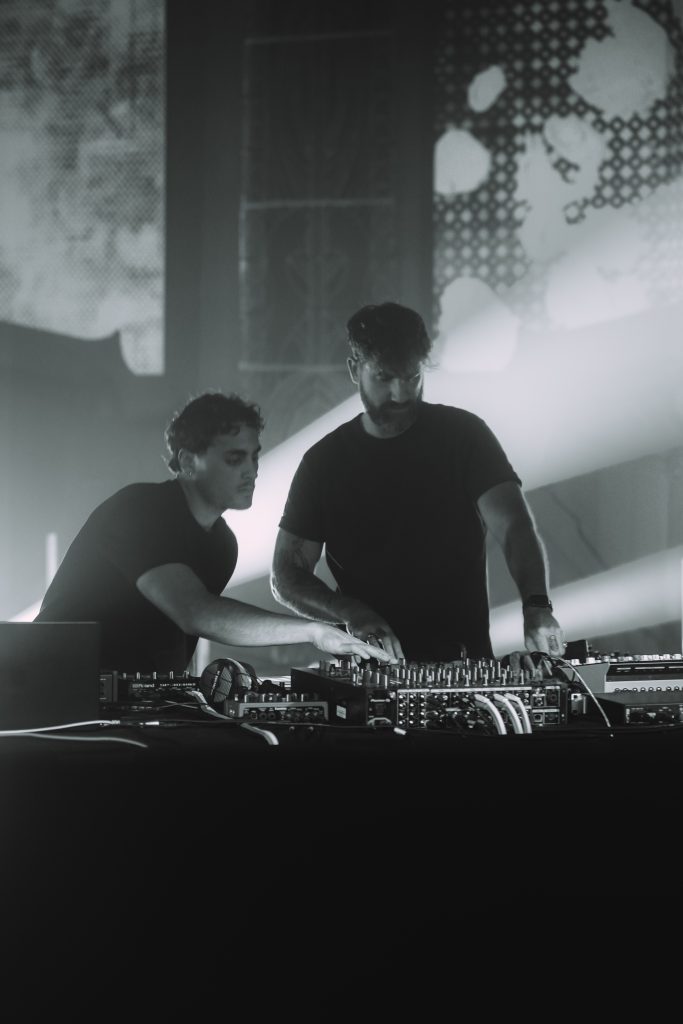
You call your music “free and unbound”—what’s the toughest part about keeping that vibe while still making it sound tight and pro?
First, it’s about keeping the joy in the process. When you enjoy creating, the result follows naturally.
From the beginning, we made a promise to ourselves: make what we want, when we want, without worrying about trends or expectations. That mindset was a huge relief. In our solo projects, we felt boxed in—Djena was expected to produce house/minimal, and Ben as Ruhbarb was doing techno. Dropping a drum & bass track out of nowhere wouldn’t have made sense.
This freedom isn’t as easy as it sounds. Many artists can’t afford it—due to lack of time, public image, or fear of judgment. We’ve made peace with all that. We stay true to what we love and follow our instincts.
‘Akua’ blends toughness with feeling—where do you see that balance fitting into where electronic music’s headed next?
That’s tough to predict. Trends evolve at lightning speed, and people get used to new sounds fast.
Honestly, we don’t care much about chasing the next genre. We stay updated on what’s out there, discover new talents, and draw inspiration—but we focus on our own path.
The landscape is shifting. Labels have less influence, and attention is moving to party brands and DJ profiles. That’s just how things are now. No use in clinging to a “things were better before” mindset.
Alright, let’s cool it down—what’s the wildest or most fun memory you’ve made as Som.1 so far?
The wildest moment was definitely when Djena’s studio got flooded at the end of last year. It was a devastating emotional blow—over 10 years’ worth of gear, vinyl, synths, drum machines, guitars… all lost in an instant.
Ben thought Djena might quit music altogether, but the very next day, he texted to say he was dealing with the insurance and that we’d be back in the studio by early 2025—and we were.
Some of the gear you’ll see in our upcoming live show video barely survived the flood. Many faders, functions, and inputs/outputs were damaged, but we made do with what was still working—and with what friends kindly lent us for the shoot. Most of that hardware is now completely out of commission—about 99% of it is gone. We’re currently rebuilding our setup from scratch.
Without a doubt, it was the craziest chapter in our journey so far.
Stream ‘Akua’ below:
Follow Som.1:

